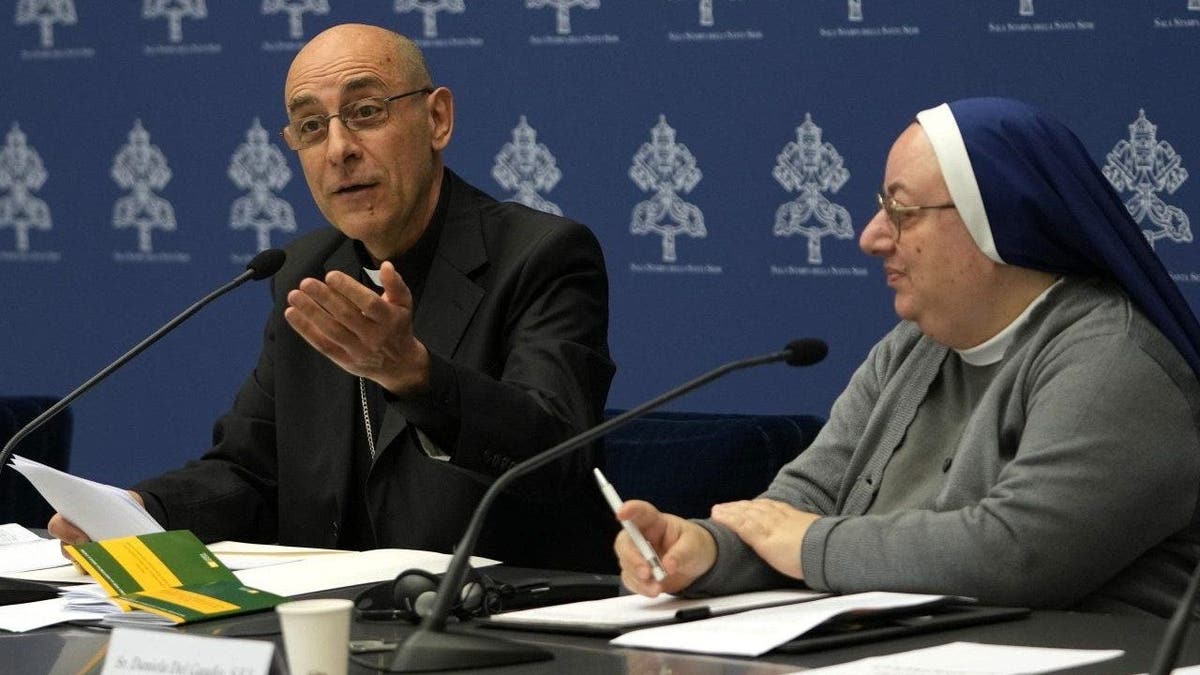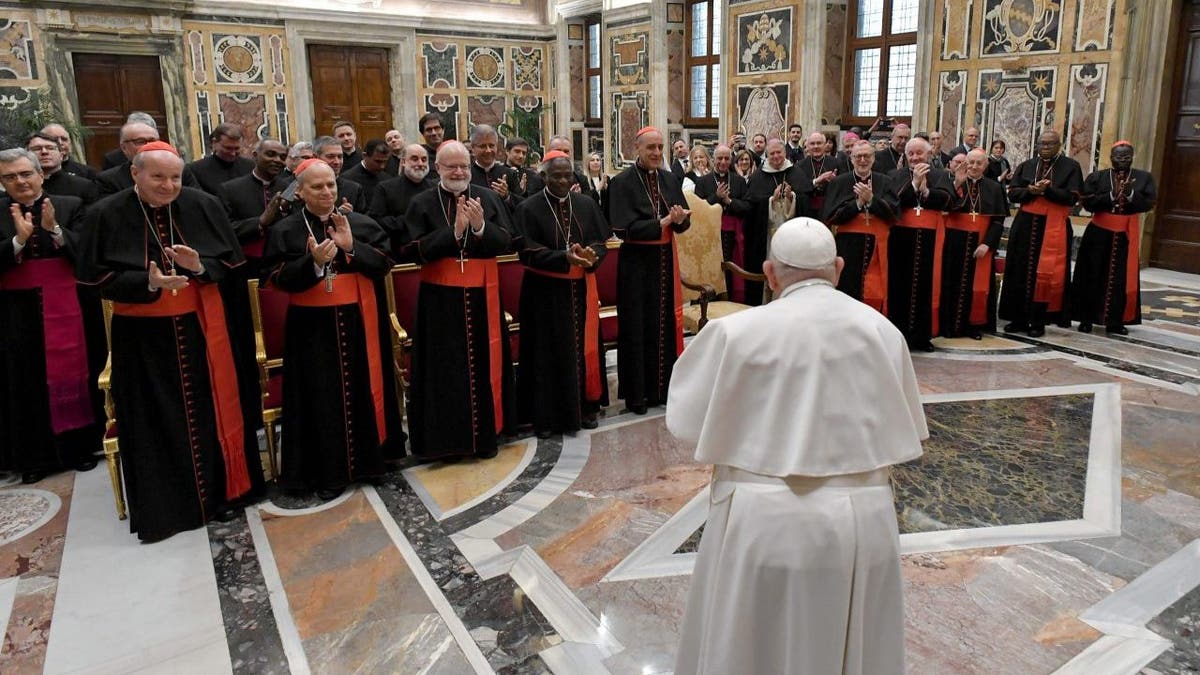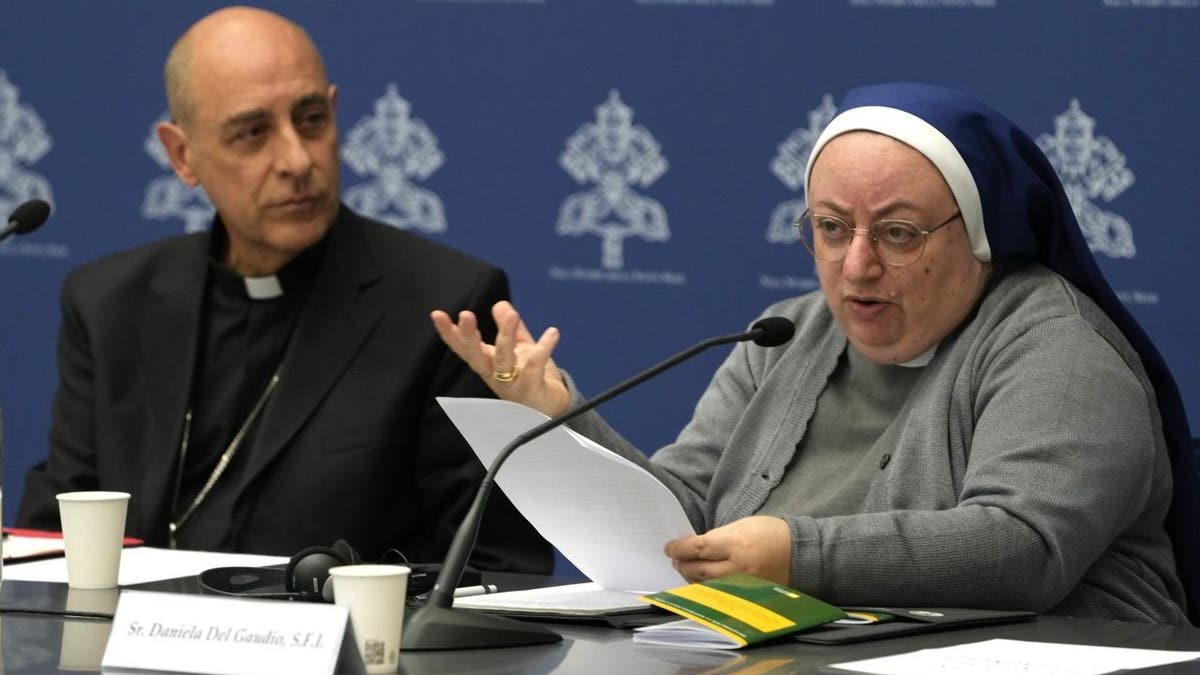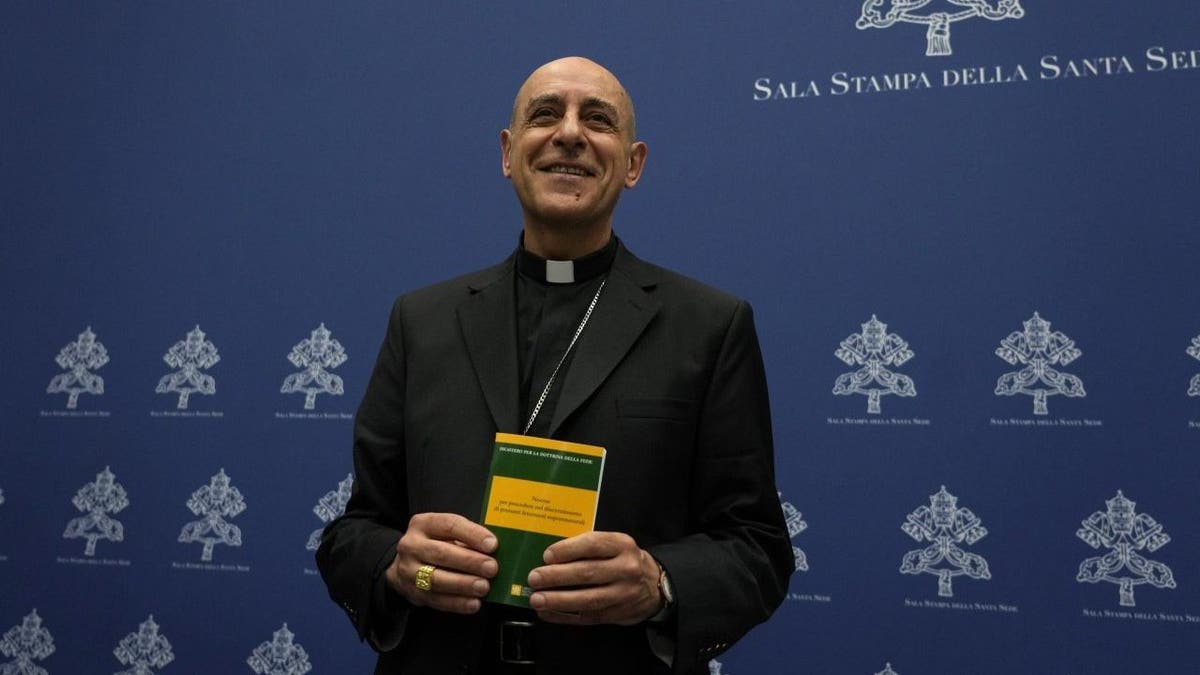The Catholic Church released a document Friday providing new guidance for the discernment of so-called supernatural phenomena.
The document – translated into seven languages – specifically addresses how the Church should investigate events “which seem to go beyond the limits of ordinary experiences and present themselves as having a supernatural origin (such as alleged apparitions, visions, inner locutions or external, written or messages). , phenomena linked to religious images and psychophysical phenomena.)”
Throughout the history of Christianity, most religious denominations have recognized supernatural events and miraculous occurrences variously attributable to the Holy Spirit, angels, saints, or other benevolent entities.
“When spiritual experiences are accompanied by physical and psychological phenomena that cannot be immediately explained by reason alone, the Church has the delicate responsibility of carefully studying and discerning these events,” the Vatican document says.
VATICAN DECLARES GENDER THEORY AND GPA VIOLATE HUMAN DIGNITY IN ETHICS DOCUMENT

Argentine Cardinal Victor Manuel Fernandez, left, head of the Vatican's doctrine office, is accompanied by Sister Daniela del Gaudio, director of the Observatory of Marian Apparitions and Mystical Phenomena, during a news conference at the Vatican. (AP Photo/Alessandra Tarantino)
The document offers the following four considerations for the Church when addressing alleged supernatural events: “(a) whether signs of divine action can be seen in phenomena allegedly of supernatural origin; (b) whether there is anything that conflicts with faith and morals in the writings or messages of those involved in the alleged phenomena in question; (c) whether their spiritual fruits are permitted to be enjoyed, whether they should be purified of problematic elements, or whether the faithful should be warned of potential risks; (d) whether it is appropriate for the competent ecclesiastical authority to realize their pastoral value. »
Under the new guidelines, the Church will no longer aim to authoritatively assert the supernatural origin of an event, but rather to approve or reject the public's devotion and popular piety based on available evidence.
Multiple reasons have been put forward for this change, namely the time required to confidently adjudicate supernatural phenomena and the increasing impact of rapid, global mass communication.
BIDEN 'DOESN'T UNDERSTAND THE CATHOLIC FAITH,' BISHOP SAYS: 'I'M NOT ANGRY WITH HIM, HE'S JUST STUPID'

Pope Francis meets with the plenary assembly of the Dicastery for the Doctrine of the Faith during an audience at the Apostolic Palace in the Vatican. (Vatican Swimming Pool via Vatican Swimming Pool/Getty Images)
Cardinal Víctor Manuel Fernández, prefect of the Dicastery for the Doctrine of the Faith (DDF), announced Friday during a press conference at the Vatican that the decision is due to these factors that lead to a greater risk of disinformation and manipulation .
The DDF warns that incidents allegedly of supernatural origin may be fabricated by people seeking “profit, power, fame, social recognition or other personal interest” and may contain “doctrinal errors, oversimplification of the message evangelical or the propagation of a sectarian mentality. »
The Catholic Church believes that a miracle or manifestation of divine origin cannot teach or propagate ideas contrary to Scripture or Sacred Tradition — in other words, a supernatural event cannot testify or contradict established Christian doctrine.
The DDF considers such contradictory incidents as “simply the product of the imagination, the desire for novelty, the tendency to fabricate lies or the propensity to lie.”
THE MOST POPULAR CATHOLIC OUTSIDE THE VATICAN: Mgr BARRON

The Vatican has issued guidelines reforming its process for evaluating alleged supernatural phenomena that have long punctuated church history, curbing definitive declarations unless the event is obviously fabricated. (AP Photo/Alessandra Tarantino)
A full investigation into the origins and explanations of an alleged supernatural event by the DDF can take years or even decades. This slow execution of investigations means that their findings are often delivered far too late to affect the local community's interpretation of events, leading to theological confusion.
Only six cases of alleged supernatural events have been definitively classified by the Vatican since 1950, according to Fernández.
Furthermore, the DDF notes the globalizing effects of technology on the Catholic Church and how “with the development of modern means of communication and the increase in pilgrimages, these phenomena are taking on national and even global proportions, which means that a decision taken in one diocese has consequences “also elsewhere.”
Local bishops are now responsible for documenting their own investigations into alleged supernatural phenomena in their dioceses before reporting their findings to Rome.
CATHOLIC SUPPORT SWITS FOR TRUMP TO BIDEN BY SIGNIFICANT MARGIN: POLL
The DDF will review and further investigate the allegations before making a decision on how clergy and laity should proceed.
Possible decisions range from nihil obstat (“nothing stands in the way), at prohibetur and obstruatur(“prohibited and obstructed”) until the most conclusive result, Declaration of non-supernaturality (“declaration of non-supernaturalism.”)
READ THE DOCUMENT (WRITTEN IN SEVEN LANGUAGES) — MOBILE USERS CLICK HERE
The DDF may also ask bishops to refrain from disclosing alleged supernatural events due to concerns about authenticity or exploitation by interested parties.
“As a general rule, neither the diocesan Bishop, nor the Episcopal Conferences, nor the Dicastery will declare that these phenomena are of supernatural origin, even if a Nihil obstat is granted,” said the DDF. “It remains true, however, that the Holy Father may authorize a special procedure in this regard.”
Friday's document entirely replaces guidelines previously established under Pope Paul VI in 1978.
CLICK HERE TO GET THE FOX NEWS APP

Cardinal Víctor Manuel Fernández, head of the Vatican's doctrine office, poses for photographers at the end of a press conference at the Vatican. (AP Photo/Alessandra Tarantino)
The Catholic Church recommends “extreme caution” before attributing phenomena to a supernatural force, warning that too quickly attributing a divine origin to explainable events can harm faith and distort beliefs.
Severe canonical penalties exist for members of the Catholic Church who knowingly falsify evidence of a miraculous event.
